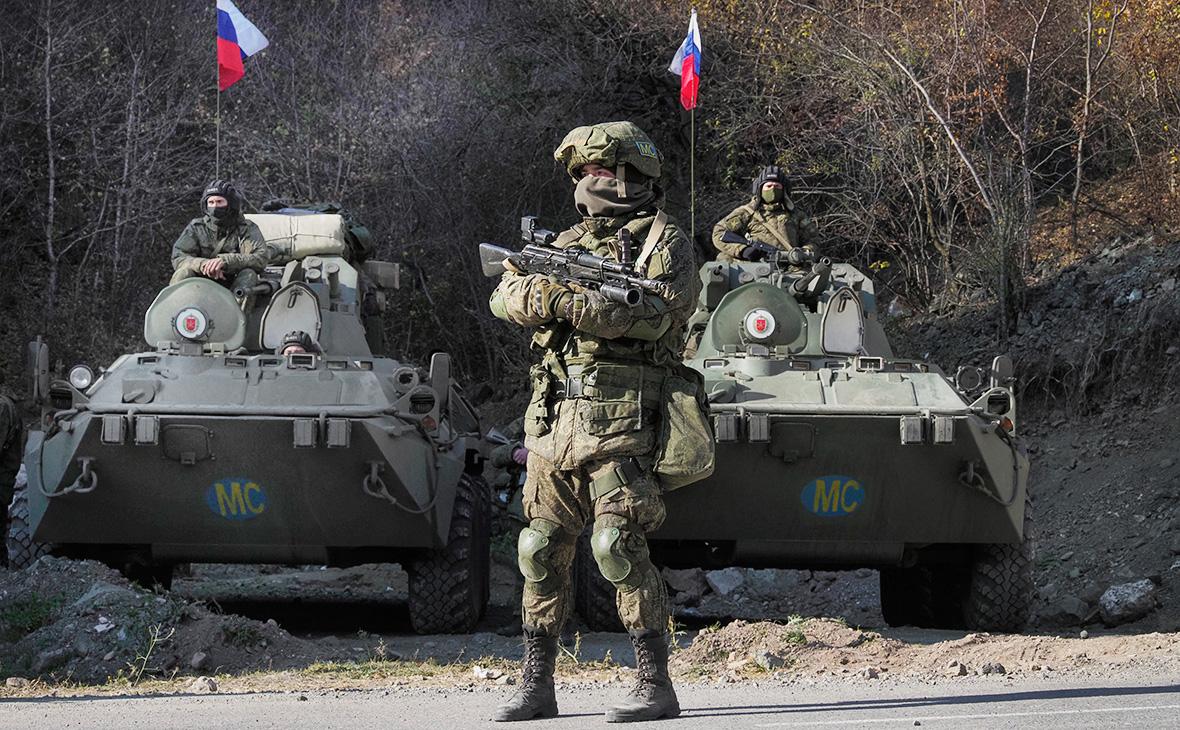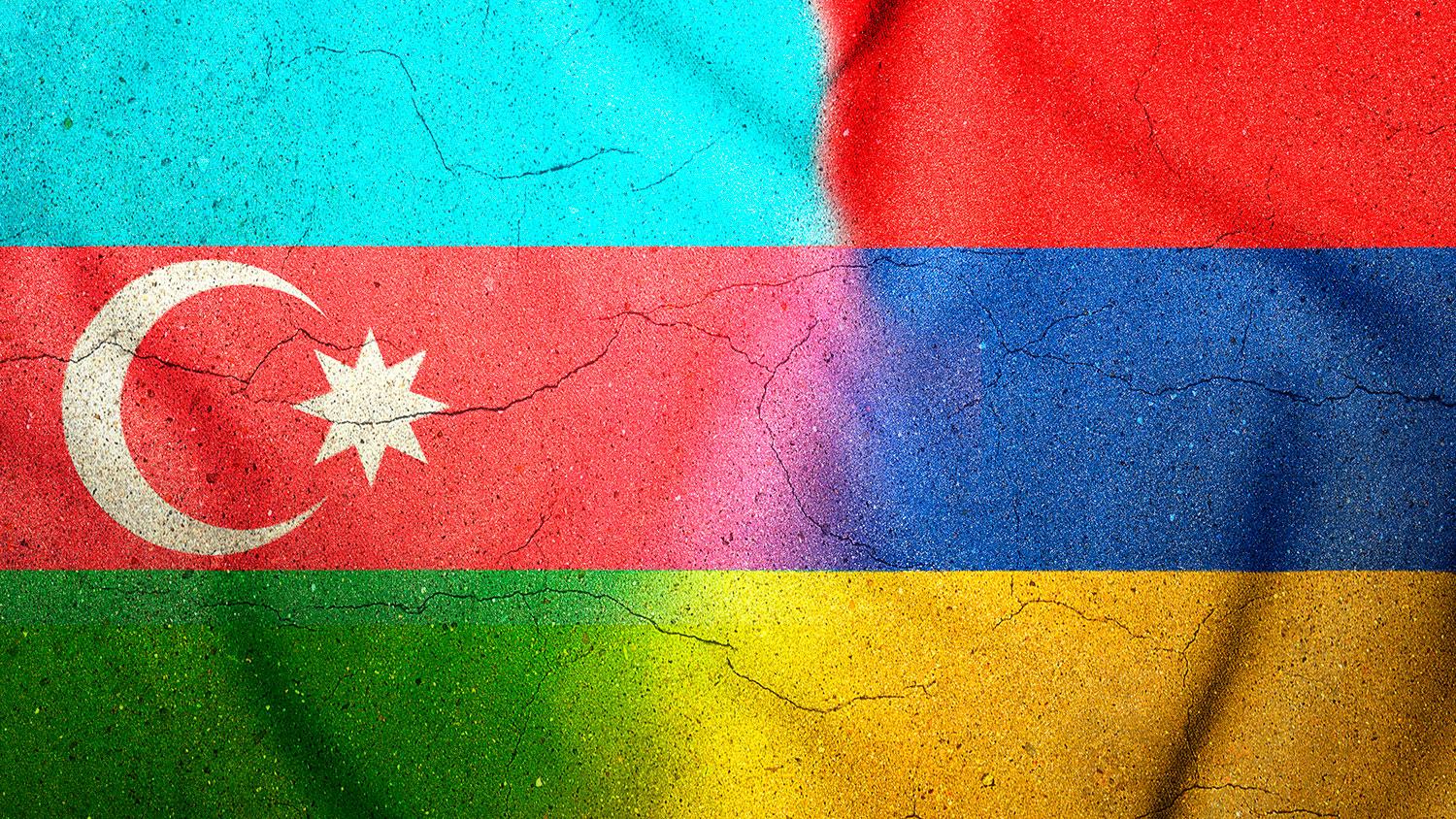Armenian Security Council dreams of replacing Russian peacekeepers in Karabakh with French and US ones And says "Goodbye, Russia?"
A tin hat was put on Yerevan's choice between the West and the Russian Federation in September 2013, after the then Armenian President Serzh Sargsyan’s long and, apparently, hard conversation with Russian President Vladimir Putin. While making a statement for journalists waiting behind the doors, displeased Sargsyan said that Armenia does not strive for European integration (as it is easy to guess that EU could be followed by NATO), and from now on, his priority is to join the Eurasian Economic Union.
Afterwards, within almost 5 years, Sargsyan and his Republican Party of Armenia were afraid of even looking towards the West as opposed to Armenian Prime Minister Nikol Pashinyan who overthrew the Sargsyan regime. Many people think that Pashinyan’s team is the project of the ever-memorable Soros. It is not a coincidence that Russia suspected Pashinyan of playing a double game, throughout his rule. Moreover, the Armenian authorities’ actions increased these suspicions, as they were waiting for the moment for crucial change in foreign policy.
Secretary of the Armenian Security Council Armen Grigoryan’s recent statement made on the Public Television of Armenia is noteworthy.
Grigoryan not only is the secretary of the Security Council and nephew of former chief of the General Staff of the Armenian Armed Forces, Colonel-General Movses Hakobyan, with whom the current government is at loggerheads, but also one of the most pro-Western members of Pashinyan's team consisting of few members. Before the revolution, Grigoryan was the coordinator of the election programs of Transparency International, one of the sponsors of which is Soros.
Grigoryan said that “the existing mechanisms are insufficient to ensure the security of Karabakh region, the events in Farrukh village testify to this,” Grigoryan said. “If we are talking about security guarantees, then there must be international forces in Karabakh, at least for a certain period. We are also considering Russia's participation in ensuring this security. We want to get additional security guarantees. We are not talking about other troops, but we must find these mechanisms.”

Several points are noteworthy here. At first glance, it looks a bit complicated. Armenia says that Russia's participation, including its peacekeepers, is being considered, but it is necessary to internationalize the peacekeeping contingent in Karabakh. By whom? It is quite obvious that by the servicemen, primarily from France and the US. These days, Yerevan has been relying on them and hopes to grab a piece of Karabakh.
To hear remarks about the "international presence" in Karabakh from not only an Armenian official, but one of the people closest to Pashinyan is something new, and very noteworthy. What does Grigoryan want to say by making this statement? It is well known that according to the trilateral statement dated November 10, 2020, the security of a certain part of the Karabakh region is temporarily ensured by Russian peacekeepers for five years. However, one of the Armenian senior officials sends an invitation to NATO countries to ensure security in the same Azerbaijani region.
Grigoryan's statement is clearly directed against the Russian Federation. A few days earlier, Spokesperson for Russian Foreign Ministry Maria Zakharova stressed at a weekly briefing that the Armenian-Azerbaijani dialogue is based on the basic principles proposed by Baku, and there was Yerevan’s constructive reaction to these principles. However, now we see that through statements of the secretary of its Security Council, Yerevan practically avoids its main patron and intends to hold more generous hands of France and the US.

What conclusions can be drawn? The Armenian leadership realizes that in the current realities, Karabakh is completely lost for it. Both the European Council and Russia cannot help Armenia in this issue. Taking into account yesterday's slightly nervous statement made by Zakharova, the Kremlin and the European Council are competing for the benefits of the main peacemaker in the Armenia-Azerbaijan Karabakh conflict. That's why the Armenian side is nervous and looking for convenient options. It seems to Armenia that hypothetical forces, in particular, France and the US, and in general, NATO, may save it.
The plans did not come true. Firstly, Baku is striving to finally resolve the Armenian-Azerbaijani issue and thereby trying to establish peace in the South Caucasus, but not the escalation that Armenia hopes for. The second point is that Russia will not be pleased with Yerevan's attempts to internationalize the peacekeeping contingent in the Karabakh region and withdraw the Russian peacekeepers by replacing them with the French and US ones.








